Eczema Triggers: Will We Ever Solve the Mystery?
When you think of atopic dermatitis or eczema, does an image of a red, itchy, flaky rash come to mind? There’s so much more hiding below the surface of this skin condition and so many other questions that we have. Questions like: What triggered my flare this time? I ate pizza for lunch yesterday and broke out into a flare this morning, is my skin reacting to the gluten in the crust, the dairy in the cheese, or the tomato sauce? Finding out the source of these rashes is a mystery we’re all trying to solve.
Do you know your eczema triggers?
Sometimes we can pinpoint exactly what caused our most recent flare-up, but sometimes finding that one specific thing that triggered a flare can feel like staring into a black hole. Our triggers are much easier to identify when there is a known reaction such as an allergic reaction. But things aren’t always so clear. So many of us know some of our triggers while others may have an inkling of what they are but still question them. While atopic dermatitis is a very visible skin condition, its triggers lurk and remain invisible creating a great and vast unknown.
What internal factors can trigger flares?
Sometimes, our own bodies can be to blame for the irritating and persistent itchy rash that rears its ugly head. It’s as though we’re being betrayed by our emotional and physical responses. What’s most frustrating is that they aren’t so easy to escape. Stress, anger, sweat all play a role in our lives at one point or another and we can’t all walk around with air conditioners strapped to our bodies or escape the daily stressors that are constantly circling around us.
What external factors can trigger flares?
Speaking of feeling trapped by triggers, how do you escape the ones that lie right outside our front door, within our homes, or the ones we put on or in our bodies? The answer just might be that eczema triggers are everywhere! They’re in the changing weather and seasons, the products we use on our skin and clean our homes with, the fabrics we use to cover up the very rash they’re creating. They’re prowling about waiting to incite the beast that can be our skin.
What limitations does eczema put on your life?
Not only do we feel cornered by our triggers, but by our inability to control or explain them. Some just can’t understand that we aren’t canceling plans because we don’t want to go, but because their pet’s dander can create a week’s worth of frustration on our skin. The stress of school, work, home, and more are ingrained into our daily lives, and managing that stress isn’t always easy. Staying focused when a flare has erupted on our skin and we’re waiting to see if it worsens can certainly take away our focus. A life of atopic dermatitis and triggers is limiting and hard to run from.
What triggers do you avoid?
Our only means of freedom is to avoid the triggers we can control. Using more natural cleaning products and avoiding harsh chemicals, wearing breathable fabric, reducing strenuous activities that make us sweat are all great ways to get started. We’re on the run but the triggers might not have caught up to us yet!
The 4th Annual Atopic Dermatitis in America survey was conducted online from December of 2019 through April of 2020. 408 people completed the survey, all had to be diagnosed with atopic dermatitis to qualify.
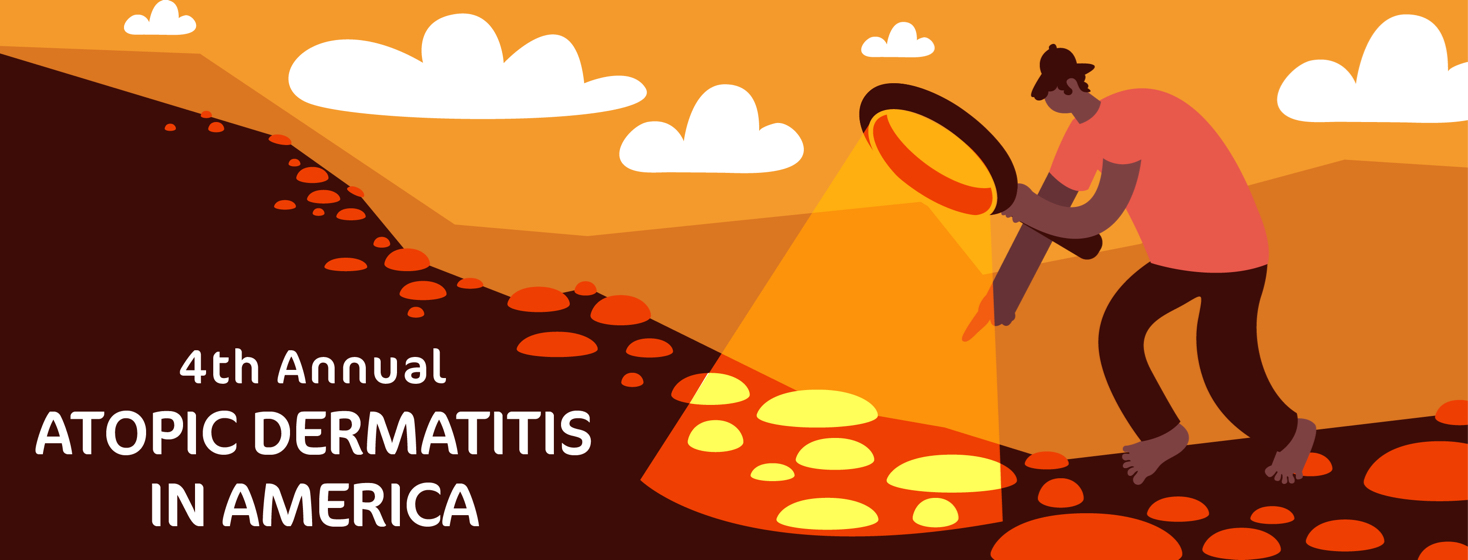
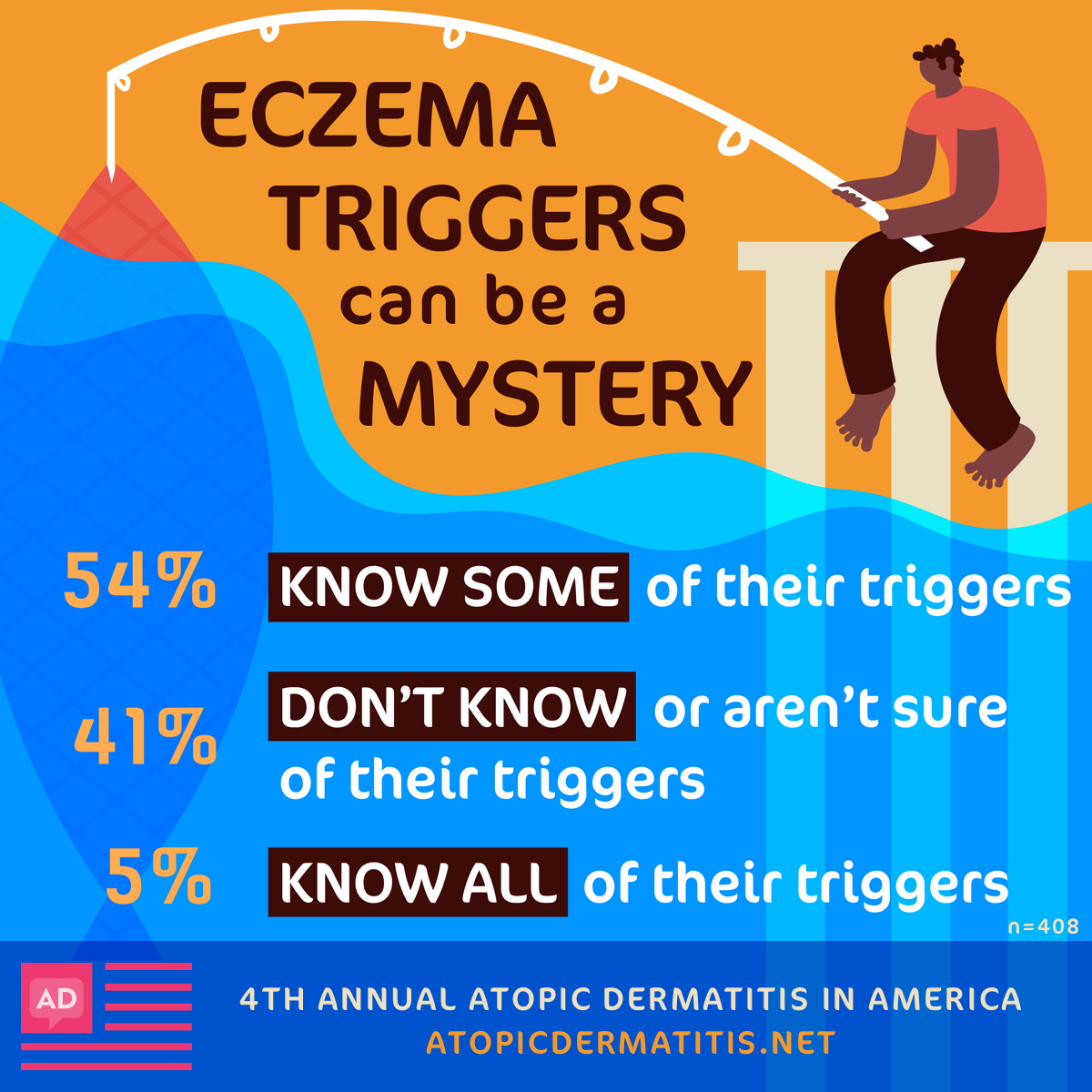
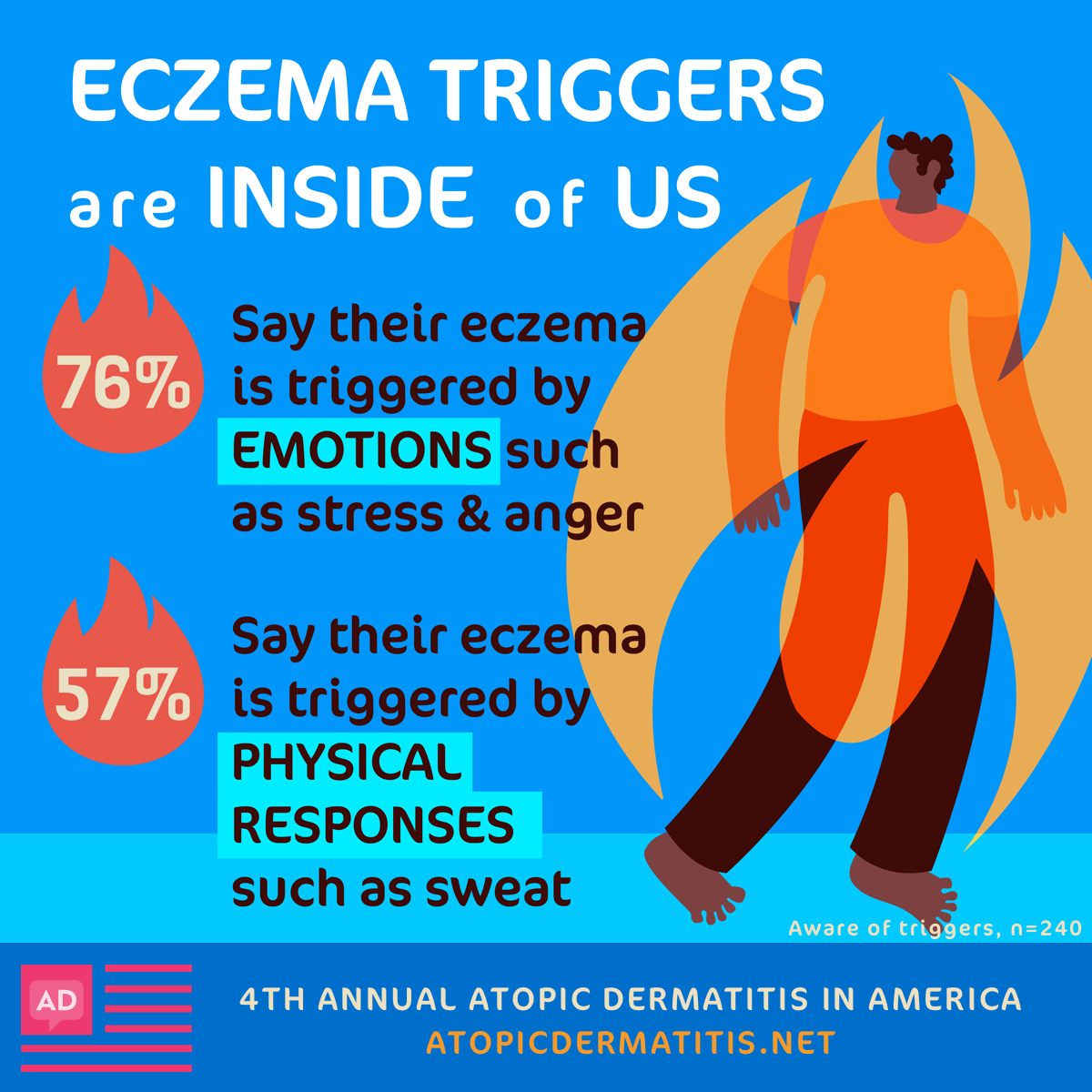
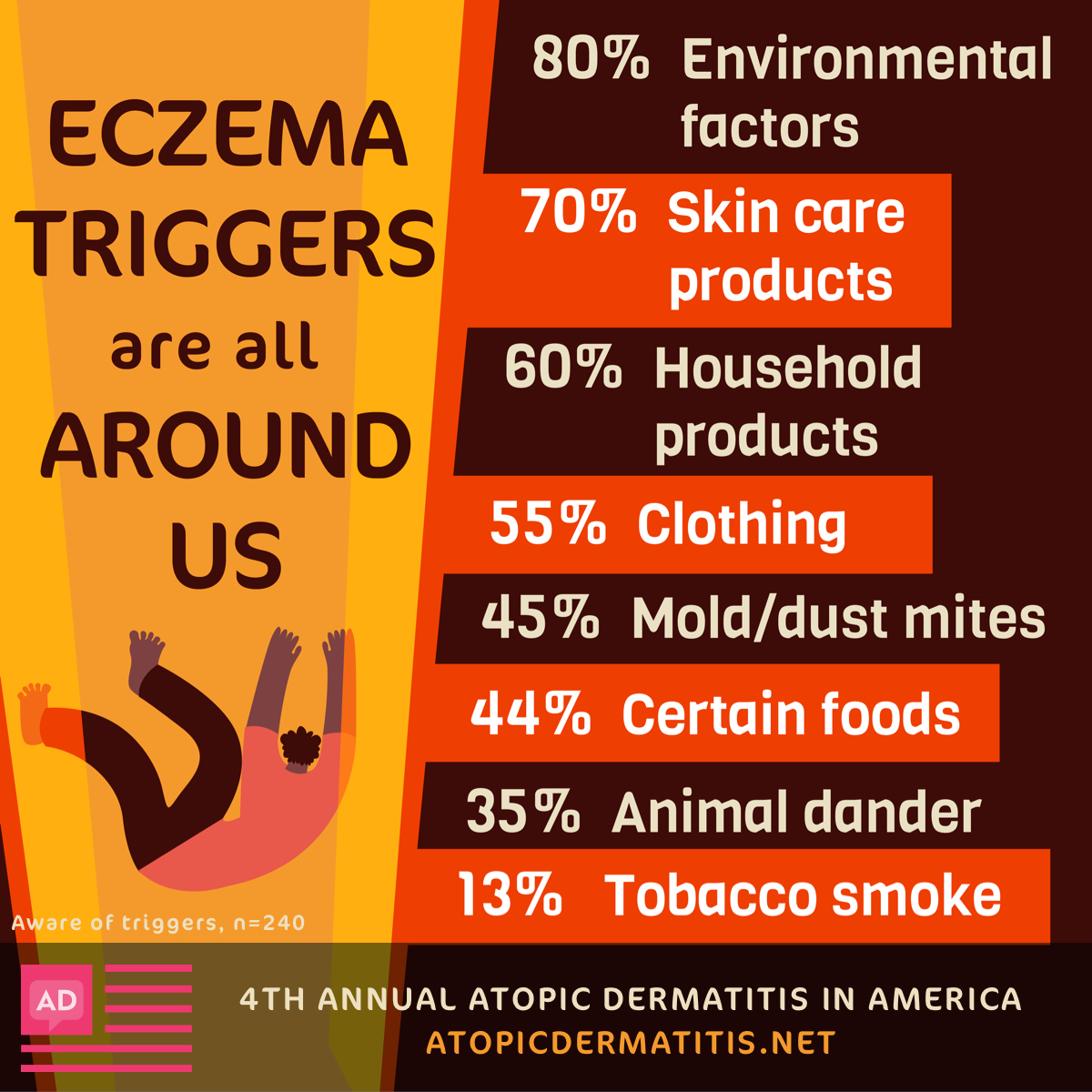
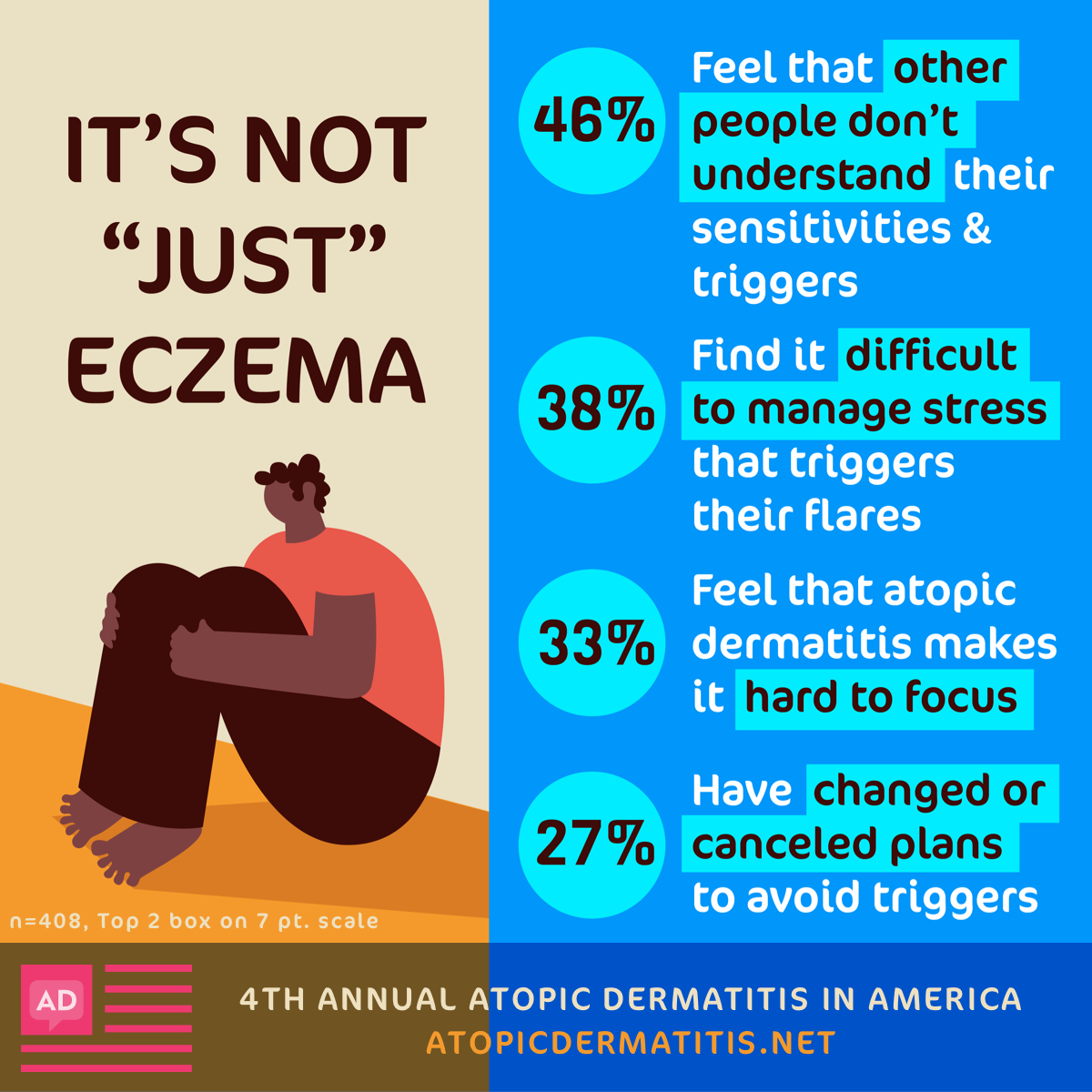
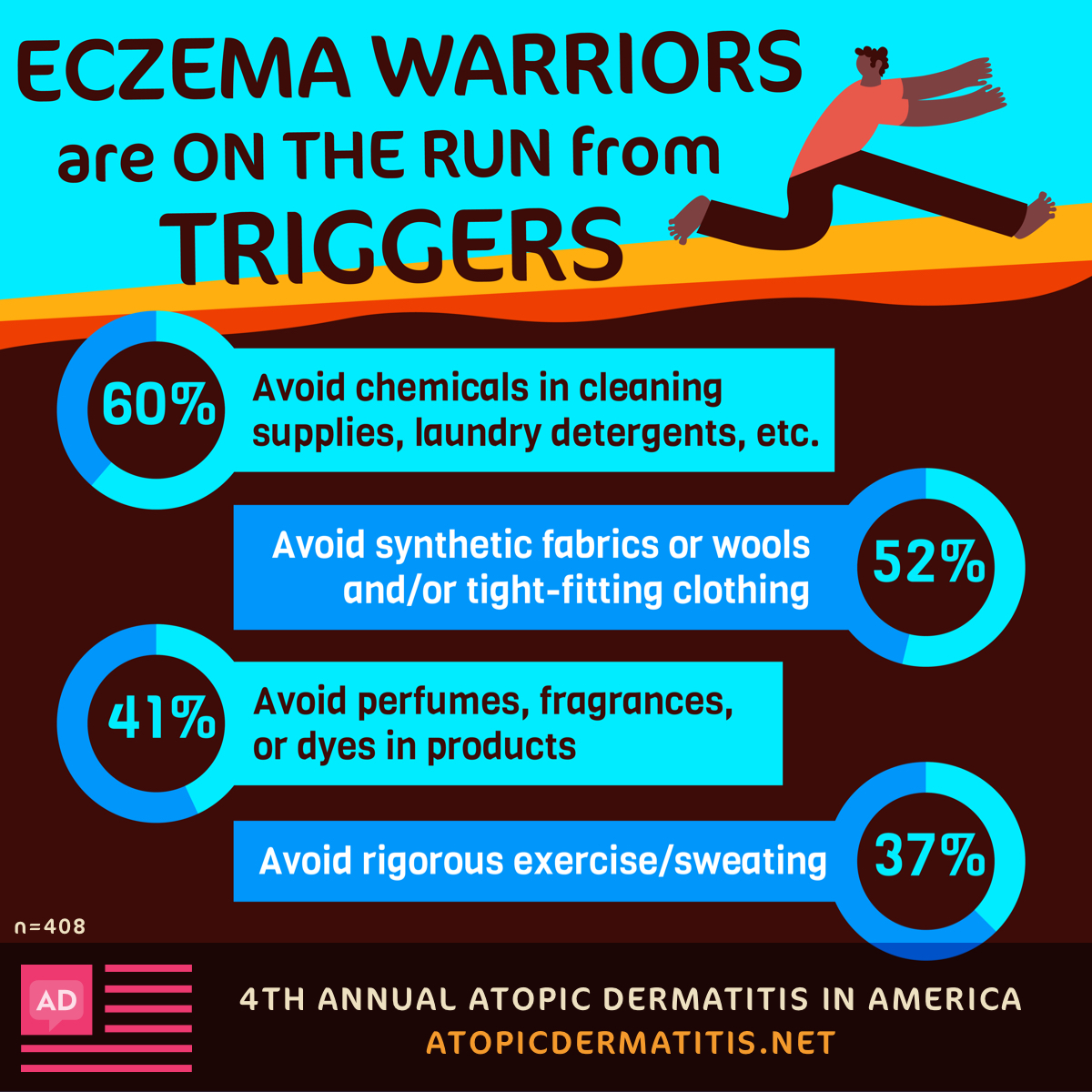
Join the conversation